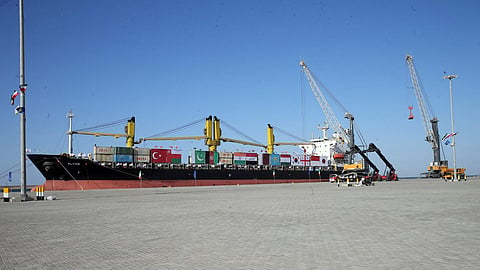

The United States State Department said on Tuesday that Indian companies risked their sanctions over any investments in Iran after New Delhi signed a 10-year contract to operate and develop the long-stalled strategic Chabahar port.
"Any entity—anyone—concerned with business deals with Iran; they need to be aware of the potential risks that they're opening themselves up to and the potential risk of sanctions," State Department spokesman Vedant Patel told reporters at his daily news conference.
“We're aware of these reports that Iran and India have signed a deal concerning the Chabahar port. I will let the government of India speak to its own foreign policy goals vis-à-vis the Chabahar port as well as its own bilateral relationship with Iran,” Patel added.
“I will just say, as it relates to the United States, US sanctions on Iran remain in place and we'll continue to enforce them,” he said in response to a question on India's deal with Iran on the strategic Chabahar port.
The Chabahar port on the Gulf of Oman, which New Delhi had proposed to develop way back in 2003, will provide Indian goods a gateway to reach landlocked Afghanistan and Central Asia using a road and rail project called International North-South Transport Corridor, bypassing Pakistan.
Located in Sistan-Balochistan province on Iran's energy-rich southern coast, the Chabahar port is being developed by India and Iran to boost connectivity and trade ties.
India has been pushing for the Chabahar port project to boost regional trade, especially for its connectivity to Afghanistan and has emerged as a commercial transit hub for the region.
The port has provided much-needed sea access to the landlocked countries of the region to reach India and the global market.
India and Iran have projected the port as a key hub for the International North-South Transport Corridor (INSTC) project. The INSTC is a 7,200-km-long multi-mode transport project for moving freight among India, Iran, Afghanistan, Armenia, Azerbaijan, Russia, Central Asia and Europe.